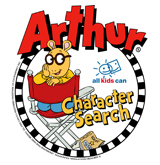The stimulus plan: what’s in it for people with autism?
by Beth Finke
Here’s an understatement for you: that stimulus package President Obama signed into law last week is huge. It’s a bit daunting, too. To help sort through all the changes, the Disability Policy Collaboration (The Arc of the United States, combined with United Cerebral Palsy) lists the amount of increased spending disability specific programs will receive from the time the bill is enacted through 2010. The list highlights different topics — health, unemployment insurance, housing, etc. Here are some of the changes I think could especially affect people with autism and other disabilities:
* NIH Biomedical Research: $10 billion for increased research.
EDUCATION
* Special Education: $11.3 billion for the IDEA State Grant Program and $500 million for the IDEA Part C Early Intervention Program. $400 million for the pre-school program.
SOCIAL SECURITY
* SSI: A one-time emergency payment of $250 to people who receive Supplemental Security Income (SSI), Social Security, disabled veterans, and other selected benefits. SSA Disability Backlog and Claims: $500 million to help the Social Security Administration reduce the processing time for claims and appeals decisions.
* SSA Modernization: $500 million to replace the antiquated National Computer Center.Employment
*Vocational Rehabilitation: $540 million for VR State Grant.
For more information go to the DPC website.








